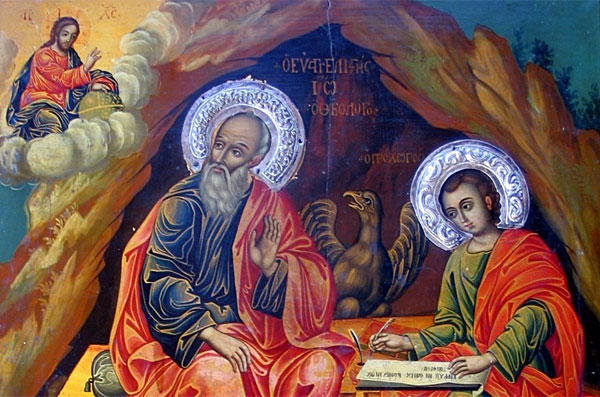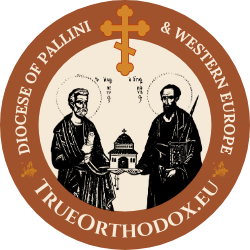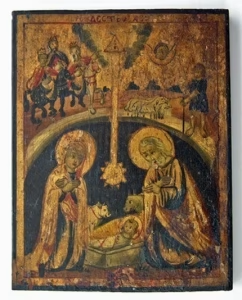The Feast of St. John the Theologian – September 26

Today, the Orthodox Church celebrates the Feast of St. John the Theologian, also known as St. John the Apostle and Evangelist.
St. John was the son of Zebedee and the brother of St. James the Greater. Along with his brother and St. Peter, he was part of the inner circle of Christ’s disciples, witnessing many significant events, such as the Transfiguration of the Lord and the Agony in the Garden of Gethsemane and resting his head on the Lord’s chest during the Mystical Supper. Often he was referred to as the “disciple whom Jesus loved.
After the Resurrection and Ascension of Christ, St. John remained steadfast in preaching the Gospel. He traveled extensively, establishing churches and caring for the spiritual welfare of the Christian community. During the persecutions of the early Church, he was exiled to the Island of Patmos, where he struggled and was persecuted received and recorded the mystical visions that became the Book of Revelation.
St. John is the author of the fourth Gospel, three Epistles, and the Apocalypse. His writings are distinct for their theological depth, illuminating Christ as the Logos—the Word of God made flesh. In his Gospel, St. John emphasizes the divine nature of Christ and His eternal relationship with the Father. The central message of St. John’s teaching is encapsulated in the word “love.” His epistles remind us that “God is love” and that whoever loves knows God and abides in Him.
St. John’s Gospel begins with the profound words, “In the beginning was the Word, and the Word was with God, and the Word was God.” This “Word” is in Greek “Logos” and becomes a name for the second person of the Holy Trinity. St. John here prefers the word “Word” perhaps rather than “Son” so no one in the beginning will think the “Son” less God than the Father.
Unlike the other apostles, St. John reposed in peace rather than through martyrdom. According to tradition, he departed this life at an advanced age in Ephesus, in the presence of his disciples. His body was buried in a cross-shaped grave, but when his tomb was later opened, it was found empty. The faithful celebrate his feast twice a year: once on May 8th, commemorating the miraculous “dust” of the saint, and on September 26th, His falling asleep.
St. John’s life and teachings are particularly relevant in today’s world, where the search for truth and meaning is often overshadowed by confusion and spiritual emptiness. His Gospel reveals Christ not only as the Savior of the world but as the Light that overcomes darkness. Through his writings, St. John calls us to embrace love as the supreme expression of our faith, encouraging us to seek unity with Christ through prayer and contemplation.
Troparion of St. John the Theologian
O Apostle beloved of Christ God, hasten to deliver a defenceless people. He who permitted thee to recline on His breast, receiveth thee bowing in prayer. Implore Him, O Theologian, that He disperse the persistent cloud of the nations, asking for us peace and great mercy.








